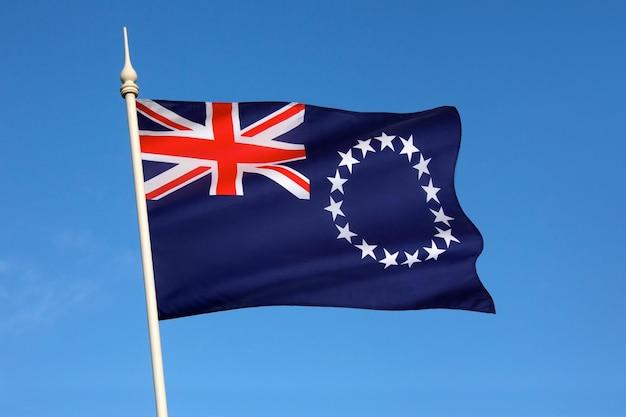Setting up a Cook Island trust can be an excellent way to safeguard your assets and ensure their protection for future generations. But what exactly is a Cook Island trust? Is it legal? And how much does it cost to set up one? In this blog post, we will dive into the intricacies of Cook Island trust law and address common concerns and questions. Whether you’re a business owner, investor, or simply someone looking to secure your wealth, understanding the benefits and processes involved in establishing a Cook Island trust is essential. So let’s delve in and explore the world of Cook Island trusts!
Setting Up a Cook Island Trust: A Comprehensive Guide
Introduction
Welcome to our comprehensive guide on setting up a Cook Island Trust! In this blog post, we will delve into the details of this fascinating and practical financial solution. Whether you’re a seasoned investor or someone interested in protecting your assets, a Cook Island Trust might just be the right choice for you. So, let’s dive in and explore the world of trust formation in one of the most beautiful and picturesque places on Earth!
Establishing Your Cook Island Trust
What is a Cook Island Trust?
A Cook Island Trust is a flexible and powerful financial instrument that offers individuals and businesses the ability to protect their assets and enjoy various financial benefits. Cook Islands, known for their majestic landscapes and warm hospitality, have become a hub for international asset protection.
Advantages of Settling a Trust in the Cook Islands
One of the primary advantages of setting up a Cook Island Trust is the strong asset protection laws. The Cook Islands offer a robust legal framework that shields your wealth from potential predators. Besides, these trusts provide an additional layer of privacy and confidentiality, ideal for those who value discretion.
The Process of Setting Up a Cook Island Trust
Establishing your trust in the Cook Islands involves a few key steps. First, you’ll need to select a trusted trustee who will manage and administer the trust on your behalf. It’s crucial to choose a reputable trustee who understands your objectives and has experience navigating the legal landscape of the Cook Islands.
Next, you’ll need to draft the trust deed, which outlines the specific terms and conditions of the trust. This document serves as the foundation of your Cook Island Trust and should be crafted with the guidance of a knowledgeable legal professional.
Once your trust deed is in order, it’s time to transfer your assets into the trust. This can include a wide range of assets, such as real estate, investments, businesses, and other valuables. Remember, the assets you transfer become separate from your personal holdings and are protected under Cook Island law.
Ongoing Maintenance and Compliance
Setting up your trust is just the beginning. Like any financial arrangement, Cook Island Trusts require ongoing maintenance and compliance. This involves regular reporting to maintain the trust’s legal and financial vitality. It’s essential to stay up to date with changes in legislation and work closely with your trustee to ensure all necessary requirements are met.
Setting up a Cook Island Trust can be a game-changer when it comes to protecting your assets and enjoying the financial advantages it offers. With their robust legal framework and picturesque islands, the Cook Islands provide an ideal environment for establishing a trust. However, remember to consult professional advice and conduct thorough research before proceeding. So, why wait? Dive into the world of Cook Island Trusts and secure your financial future today!
Cook Islands Trust Law
Understanding the Legal Framework
If you’re considering setting up a Cook Islands trust, it’s important to familiarize yourself with the Cook Islands trust law. This legal framework forms the backbone of the jurisdiction’s trust system and provides the necessary guidelines for establishing and managing trusts.
Applicable Legislation
The Cook Islands’ trust law is primarily governed by the International Trusts Act 1984. This law sets out the key provisions for the formation, administration, and termination of trusts. It’s designed to offer robust asset protection and flexibility to individuals and families seeking to safeguard their wealth.
Asset Protection Features
One of the major reasons individuals choose Cook Islands for setting up a trust is its strong asset protection provisions. The Cook Islands trust law provides a high level of security, shielding your assets from potential creditors, lawsuits, or other claims. It offers a significant layer of protection in an increasingly litigious world.
Confidentiality and Privacy
In addition to asset protection, the Cook Islands trust law also emphasizes confidentiality and privacy. The jurisdiction has strong laws in place to ensure your personal and financial information remains secure. This level of discretion can be particularly appealing for those who value their privacy and want to keep their financial affairs confidential.
Flexibility and Control
Cook Islands trust law provides a great deal of flexibility and allows for customization of trusts to suit individual needs. Whether you want to protect assets for future generations or have specific conditions or instructions for the trust, Cook Islands law allows you to tailor the trust to your requirements. This flexibility ensures that your wishes are met and enables you to retain control over your assets.
Trustee Requirements
When establishing a Cook Islands trust, it’s important to appoint a qualified trustee who is licensed and regulated under Cook Islands law. A professional trustee can provide expertise, guidance, and ensure compliance with the legal requirements. Choosing the right trustee is crucial for the successful administration of your trust.
In conclusion, understanding the Cook Islands trust law is essential if you’re considering setting up a Cook Islands trust. With its strong asset protection, emphasis on confidentiality, flexibility, and control, Cook Islands law provides an attractive environment for safeguarding assets and ensuring peace of mind. By complying with the legal requirements and appointing a qualified trustee, you can enjoy the benefits of this jurisdiction’s robust trust system.
Cook Island Trust Problem
What is the Cook Island Trust Problem
If you’re considering setting up a Cook Island trust, it’s important to be aware of the potential problems that may arise. One of the main issues is the misconception surrounding this type of trust. Many people falsely believe that a Cook Island trust offers complete protection and immunity from legal action. Unfortunately, this is not entirely accurate.
Understanding the Limitations
While a Cook Island trust can indeed provide a certain level of asset protection, it is not foolproof. It’s crucial to understand that the laws and regulations surrounding Cook Island trusts can change, making it necessary to stay informed and adapt your financial strategies accordingly.
The Challenge of Predatory Lawyers
Another challenge associated with Cook Island trusts is the existence of predatory lawyers. These attorneys specialize in finding legal loopholes that can potentially undermine the effectiveness of your trust. They aim to exploit any discrepancies or vulnerabilities, putting your hard-earned assets at risk.
The Complexity of International Law
Dealing with international laws and regulations can be complex and confusing. If you’re not well-versed in the intricacies of international law, navigating the process of setting up and maintaining a Cook Island trust can be a real challenge. It’s essential to seek professional advice from experts who have experience in dealing with international trust laws.
The Need for a Comprehensive Strategy
To overcome the potential problems associated with a Cook Island trust, it’s crucial to develop a comprehensive asset protection strategy. This strategy should include not only the establishment of a trust but also proper estate planning, a clear understanding of global tax systems, and ongoing legal advice. By taking a holistic approach, you can minimize the risks and maximize the benefits of a Cook Island trust.
While a Cook Island trust can offer some level of asset protection, it’s important to be aware of the potential challenges that may arise. Understanding the limitations, being cautious of predatory lawyers, navigating international law complexities, and developing a comprehensive strategy are all crucial elements of effectively managing your Cook Island trust. By staying informed, seeking expert advice, and regularly reviewing your trust’s structure, you can ensure that your assets are well-protected.
Is a Cook Island Trust Legal
When it comes to setting up a Cook Island trust, one of the first questions that may pop into your mind is, “Is this even legal?” After all, the Cook Islands are a tiny, remote chain of islands nestled in the South Pacific Ocean. Can you really trust them when it comes to protecting and managing your assets? Let’s dive into the legal aspects of Cook Island trusts and put your mind at ease.
The Short Answer: Yes!
Rest assured, setting up a Cook Island trust is perfectly legal. In fact, the Cook Islands have a well-established legal system that has been specifically designed to protect the assets of trust beneficiaries. The Cook Islands International Trusts Act of 1984 provides a solid legal framework that ensures the privacy and security of your trust.
Bulletproof Asset Protection
The Cook Islands are renowned for their robust asset protection laws. By utilizing a Cook Island trust, you can effectively shield your assets from creditors, lawsuits, and other potential threats. This means that even if legal troubles arise, your hard-earned assets will remain safe and sound.
Jurisdictional Advantages
One of the main reasons why Cook Island trusts are so popular is because of the unique jurisdictional advantages they offer. The Cook Islands boast a favorable legal climate for trusts and have a history of upholding the sanctity of these structures. The high level of trust related litigation hurdles in the Cook Islands makes it extremely difficult for creditors to penetrate the protection offered by the trust.
Global Recognition
Cook Island trusts enjoy global recognition and respect. Many countries, including the United States, have recognized the validity of Cook Island trusts and the protective benefits they offer. However, it’s important to consult with a legal professional who specializes in international asset protection to ensure compliance with the laws of your specific jurisdiction.
Don’t Settle for Less
When it comes to protecting your assets, you shouldn’t settle for anything less than the best. A Cook Island trust offers a secure and reliable solution for safeguarding your wealth. By taking advantage of the Cook Islands’ legal system and jurisdictional advantages, you can rest easy knowing your assets are in good hands.
In conclusion, setting up a Cook Island trust is not only legal but also a smart and prudent choice for protecting your assets. The Cook Islands provide a solid legal framework, bulletproof asset protection, and global recognition. So go ahead, dive into the world of Cook Island trusts, and experience the peace of mind that comes with knowing your assets are well-protected.
How Much Does It Cost to Set Up a Cook Island Trust
So you’re interested in setting up a Cook Island trust, but before you dive in, it’s important to consider the cost. Setting up a trust can be a significant financial decision, and understanding the expenses involved is crucial. Let’s break it down and explore what you can expect in terms of costs.
Initial Setup Costs
Setting up a Cook Island trust typically involves a few initial setup costs. These expenses will vary depending on the complexity of your trust and the services you require. Generally, you can expect to pay for legal services, trustee fees, incorporation fees, and administrative costs. However, keep in mind that the exact figures will depend on your specific situation, so it’s always best to consult with professionals to get an accurate estimate.
Legal Services
When it comes to setting up a trust, seeking legal advice is a must. A competent attorney experienced in trust law will guide you through the process and ensure that your trust is legally sound. The cost of legal services will depend on factors such as the attorney’s expertise, the complexity of your trust structure, and the time involved. Remember, though, investing in good legal counsel will save you headaches in the long run.
Trustee Fees
Trustees play a vital role in the administration of a Cook Island trust. These individuals or institutions take on the responsibility of managing and safeguarding the assets in the trust. Trustee fees are typically calculated as a percentage of the trust’s value or as an hourly rate. The fee structure will vary depending on the trustee you choose, so be sure to shop around and find one that suits your needs and budget.
Incorporation Fees
Incorporating a Cook Island trust involves registering the trust with the relevant authorities. This process may require the payment of incorporation fees, which can vary. The fees will depend on factors such as the type of trust you’re setting up, its structure, and the jurisdiction. It’s important to research and understand the specific costs associated with the jurisdiction you choose.
Ongoing Administrative Costs
Setting up a trust is not a one-and-done deal—you’ll also need to consider ongoing administrative costs. This includes annual trustee fees, legal fees for any required updates or amendments to the trust, accounting fees, and other operational expenses. These costs will vary depending on the complexity and size of the trust, as well as the professional services you engage.
While the cost of setting up a Cook Island trust may seem daunting, it’s important to consider the long-term benefits and protections it can provide. By understanding the initial setup costs, legal services, trustee fees, incorporation fees, and ongoing administrative expenses, you’ll have a clearer picture of what to expect when embarking on this journey. Remember, seeking professional advice and tailored solutions will ensure that your Cook Island trust is established effectively and in compliance with the applicable laws and regulations.


